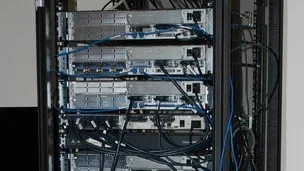
Cisco CCNA Network Fundamentals Final Chapters 
This course provides an introduction to Network Fundamentals, starting from the basics. Participants will gain the necessary skills to begin their journey in the world of networking. ▼
ADVERTISEMENT
Course Feature
![]() Cost:
Cost:
Free
![]() Provider:
Provider:
Udemy
![]() Certificate:
Certificate:
No Information
![]() Language:
Language:
English
![]() Start Date:
Start Date:
On-Demand
Course Overview
❗The content presented here is sourced directly from Udemy platform. For comprehensive course details, including enrollment information, simply click on the 'Go to class' link on our website.
Updated in [April 29th, 2023]
The Cisco CCNA Network Fundamentals Final Chapters course provides an introduction to Network Fundamentals. Participants will learn about TCP/IP, the Three-Way Handshake, UDP and TCP communication, Windowing, Sequence and Port Numbers, LAN Devices, the Data Link, Ethernet, CSMA/CD, Broadcast & Collision Domains, Mac address tables, routers, switches, and pins used to transmit and receive. This course is the last two chapters of the Networking Fundamentals series and is designed to give participants a comprehensive understanding of the basics of Network types and LAN devices.
[Applications]
After completing this course, students should be able to apply their knowledge of Network Fundamentals to create and configure a basic network. They should be able to identify the different types of LAN devices and understand how they interact with each other. They should also be able to identify the different types of communication protocols and how they are used in a network. Additionally, they should be able to identify the different types of Ethernet cables and how they are used in a network. Finally, they should be able to troubleshoot basic network issues.
[Career Paths]
The career paths recommended to learners of this course are:
1. Network Engineer: Network Engineers are responsible for designing, implementing, and maintaining computer networks. They must have a deep understanding of network protocols, routing, switching, and security. Network Engineers must also be able to troubleshoot and diagnose network issues. The demand for Network Engineers is increasing as businesses rely more and more on technology.
2. Network Administrator: Network Administrators are responsible for the day-to-day operations of a network. They must be able to configure, monitor, and maintain network devices, as well as troubleshoot any issues that arise. Network Administrators must also be able to create and maintain network documentation.
3. Network Security Analyst: Network Security Analysts are responsible for ensuring the security of a network. They must be able to identify and mitigate security threats, as well as develop and implement security policies. Network Security Analysts must also be able to monitor network activity and respond to any security incidents.
4. Network Architect: Network Architects are responsible for designing and implementing network solutions. They must be able to analyze business requirements and develop a network architecture that meets those requirements. Network Architects must also be able to design and implement secure networks.
[Education Paths]
For learners interested in pursuing a degree in Network Fundamentals, there are several paths available. Here are three of the most popular degree paths and their developing trends:
1. Bachelor of Science in Computer Science: This degree path focuses on the fundamentals of computer science, including programming, software engineering, and computer networks. It is becoming increasingly popular as more businesses rely on technology and the internet for their operations.
2. Bachelor of Science in Information Technology: This degree path focuses on the application of technology to solve business problems. It covers topics such as database management, web development, and network security. It is becoming increasingly popular as businesses rely on technology to improve their operations.
3. Master of Science in Network Engineering: This degree path focuses on the design and implementation of computer networks. It covers topics such as network architecture, routing protocols, and network security. It is becoming increasingly popular as businesses rely on technology to improve their operations.
These degree paths are becoming increasingly popular as businesses rely on technology and the internet for their operations. With the right education and training, learners can become experts in the field of Network Fundamentals and help businesses stay ahead of the competition.
Pros & Cons

Interesting lectures

Informative

Well explained

Very useful

Passionate instructor

Amazing

Longwinded instructor

Limited information
Course Provider

Provider Udemy's Stats at AZClass
Discussion and Reviews
0.0 (Based on 0 reviews)
Explore Similar Online Courses

Create WordPress Website To Sell Digital Products NO CODING!

Using Shopify and Facebook to Quick-Start an eCommerce Store

Python for Informatics: Exploring Information

Social Network Analysis

Introduction to Systematic Review and Meta-Analysis

The Analytics Edge

DCO042 - Python For Informatics

Causal Diagrams: Draw Your Assumptions Before Your Conclusions

Whole genome sequencing of bacterial genomes - tools and applications

CCNA (Cisco Certified Network Associate) Course

Packet Tracer labs for the CCNA 200-301 exam: Practical labs


Start your review of Cisco CCNA Network Fundamentals Final Chapters